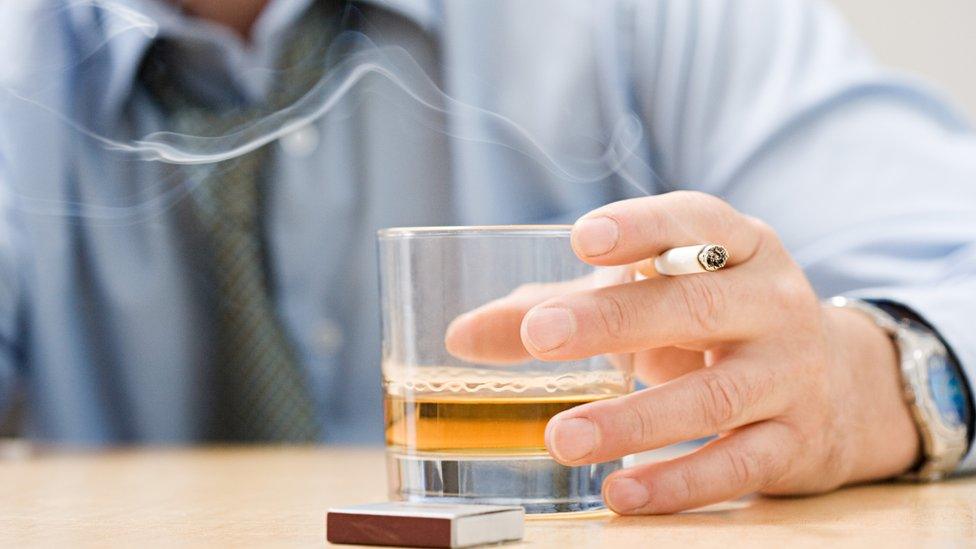Cancer risk 30 times higher for smokers who drink, research suggests
- Published

Smokers who drink alcohol are 30 times more likely to get mouth or throat cancer than those who use tobacco or alcohol alone, new guidance suggests.
The Scottish Health Action on Alcohol Problems (Shaap) guide, external highlights links between alcohol consumption and cancer, and offers advice on reducing risks.
It highlights the increased risk of cancers of the lip, mouth, pharynx, larynx and oesophagus.
More than a quarter of alcohol-related deaths in Scotland are due to cancer.
The guide for medics, called Alcohol and Cancer Risks: A Guide for Health Professionals, has been welcomed by Scotland's Chief Medical Officer Dr Catherine Calderwood.
She said the link between alcohol and cancer was not sufficiently well known and added: "Initiatives to raise awareness about cancer and alcohol are really important for our population's health."
Shaap chairman, Dr Peter Rice, referenced its 2012 report, which found there was no safe level of alcohol consumption in relation to cancer risks.
He said: "Knowledge has continued to advance and we are pleased to publish this updated report.
"In the clinical frontline, doctors, dentists, nurses and other staff in surgeries, hospitals and dental practices are having daily conversations with people about their drinking."
Dr Rice added that Scotland was an "international leader" in screening and giving brief advice for risky drinking.
He said the guide would help people reduce their cancer risk.
'Increasingly important'
Drinking alcohol can also interfere with recovery from cancer, including with the way some chemotherapy drugs work, according to Shaap.
Research also suggests breast cancer recurrence is more likely in people who drink more than five units of alcohol per week.
Prof Annie Anderson, chairwoman of the Scottish Cancer Prevention Network, said: "We know that helping people to reduce alcohol intake means helping people to reduce their cancer risk.
"As cancer rates increase, the need for alcohol intake to decrease becomes increasingly important.
"The new Shaap guidance gives clear messages about positive routes to decrease cancer risks from alcohol consumption for everyone."